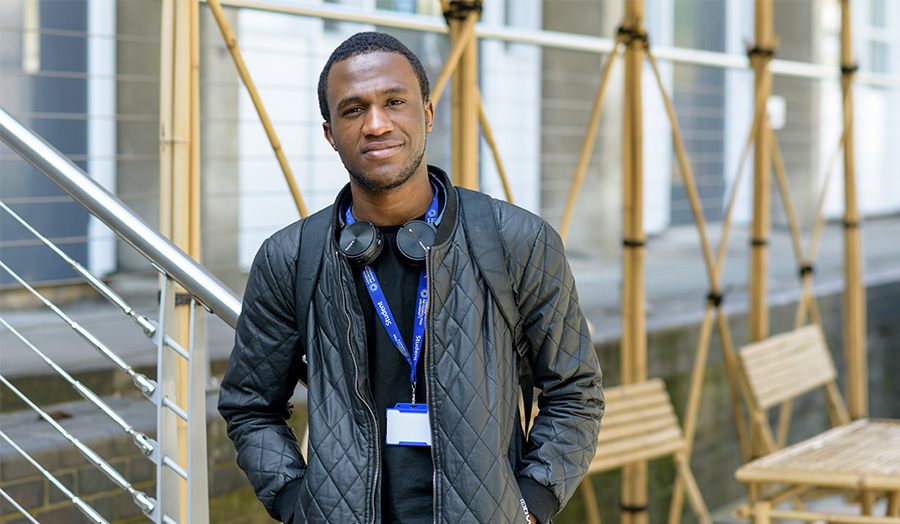Youth Studies BSc (Hons) student Michael Ayeni gives us some insights into his life as a student, his course and his next steps once he graduates.
What is your favourite thing about studying the course?
I would say my favourite things about studying Youth Studies are the seminar workshops and discussions – most things that I remember now are due to these seminar discussions. As a student, I like to critically analyse scenarios and discuss them with others. In scenarios, we learn from each other, and we are able to share each other’s experiences. I've found you can approach the lecturers here with the confidence that they are listening to you and will provide good responses.
How has the course helped you?
This course has really helped me – it has provided me with a solid background knowledge in youth work and the skills I need. Through this course, I've been able to think in a different dimension about working with young people. As a first year student, I was really eager to “help” young people, but now I realise that most young people are independent. Although some do need our help, most young people just need guidance and support instead. As youth workers, I feel it is very important to understand that “working” with young people – supporting them and promoting their independence and self-confidence – is really important.
What are you planning to do once you finish your studies?
I realise now that I love to study, I like to learn new things, and I am planning to do further study. I would like to have the option of working with different types of groups, such as adults, young people and children. I am planning to apply for the fast-track social work government scheme introduced by Frontline. They work with graduates; teach, train them and place them into councils. At the end of the programme you can qualify as a social worker through this rigorous training and education. I really believe that I can make a positive contribution to the lives of adults, young people and children by working closely alongside them and supporting them.
What was the biggest thing you learnt from your course?
I think the biggest thing I have learnt is how to work with young people. I have been able to internalise and reflect on stereotypes that I have as an individual that can impact my practice. We use tools such as Thompson's PCS (personal, cultural and structural analysis) model. I also believe that the integration of other modules such as community and especially criminology into the Youth Studies degree has been pivotal to my development. I was able to learn key things in different modules that I can use in my practice. Overall, undertaking this course at London Metropolitan University has been a good experience, I have really grown as a person and as a professional.
How were your tutors for you?
All my tutors have been supportive in different ways – some were helpful with assignments, some were able to explain theories and concepts thoroughly and clearly in lectures.
How do you feel about graduating?
Through the careers service provided by the University, I was able to find the social work government scheme and some other ideas for a backup plan. The University has provided support – especially on careers and jobs. If you actively participate, you'll find what you need. Now I can’t wait to graduate, I will be the first in my family – it has been a long journey especially for me. Previously, I didn't believe I could make it in this educational sector or that I was smart enough. Graduation is an achievement, I can’t wait to build on that and see what happens. A massive thanks to all the staff and this University, it has been an instrument in my growth and development in every aspect of my life.

